You are here
Monthly Topic Briefs
Updates on current issues and projects.
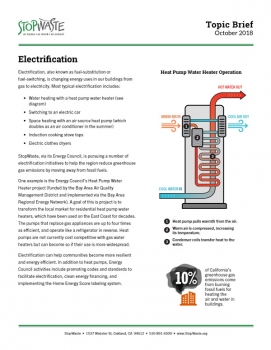
Electrification, also known as fuel-substitution or fuel-switching, is changing energy uses in our buildings from gas to electricity. StopWaste, via its Energy Council, is pursuing a number of electrification initiatives to help the region reduce greenhouse gas emissions by moving away from fossil fuels.
In an effort to mitigate plastic pollution and reduce the amount of single-use plastic, California lawmakers recently passed Assembly Bill (AB) 1884, which bans full-service restaurants from offering single-use plastic straws unless requested by the customer. The law, which will take eff ect January 1, 2019, calls for fines on establishments beginning with the third violation.

The issues related to pollution from single-use plastics are complex and lack a straightforward solution. These items, especially food ware such as cups, lids, straws, utensils, takeout containers, and bags, often end up as litter where they pollute marine environments.

In a linear economy, natural resources are extracted from the environment and transformed into products that are consumed and ultimately disposed as waste.

Residents of Alameda County have multiple free and convenient options for safely disposing of leftover hazardous waste:

The United States, Europe, Australia and other parts of the world have increasingly relied on China as an export destination for mixed paper (junk mail, newsprint, office paper, etc.) and mixed plastic.

Since 1996, StopWaste has provided more than $8 million in funding to local organizations for innovative projects that decrease the amount of waste generated and sent to the county's landfills, and encourage the development, marketing and use of recycled products. The grants program is currently focused on funding waste prevention, reuse and repair projects.
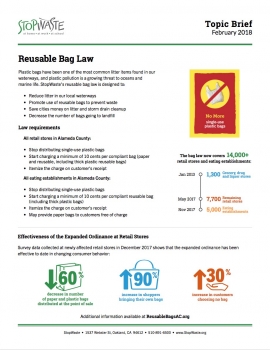
Plastic bags have been one of the most common litter items found in our waterways, and plastic pollution is a growing threat to oceans and marine life. StopWaste’s reusable bag law is designed to:
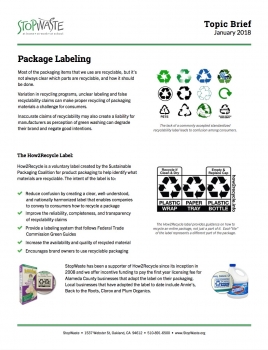
Most of the packaging items that we use are recyclable, but it’s not always clear which parts are recyclable, and how it should be done. Variation in recycling programs, unclear labeling and false recyclability claims can make proper recycling of packaging materials a challenge for consumers.
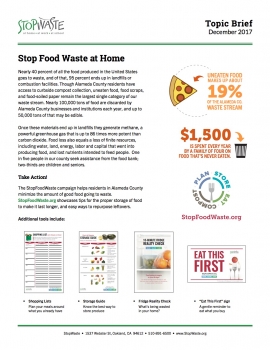
Nearly 40 percent of all the food produced in the United States goes to waste, and of that, 95 percent ends up in landfills or combustion facilities. Though Alameda County residents have access to curbside compost collection, uneaten food, food scraps, and food-soiled paper remain the largest single category of our waste stream.
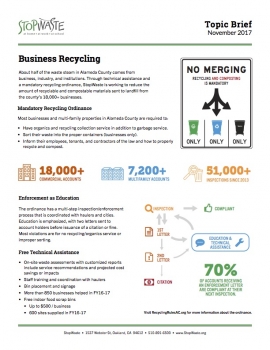
About half of the waste steam in Alameda County comes from business, industry, and institutions. Through technical assistance and a mandatory recycling ordinance, StopWaste is working to reduce the amount of recyclable and compostable materials sent to landfill from the county’s 18,000+ businesses.
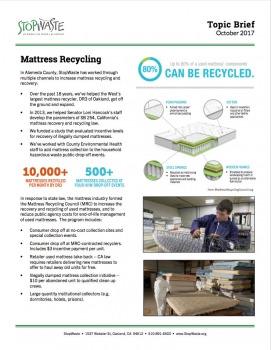
Over 50,000 mattresses end up in landfills each day, even though most of the materials can be recycled. In Alameda County, StopWaste has worked through multiple channels to increase mattress recycling and recovery.